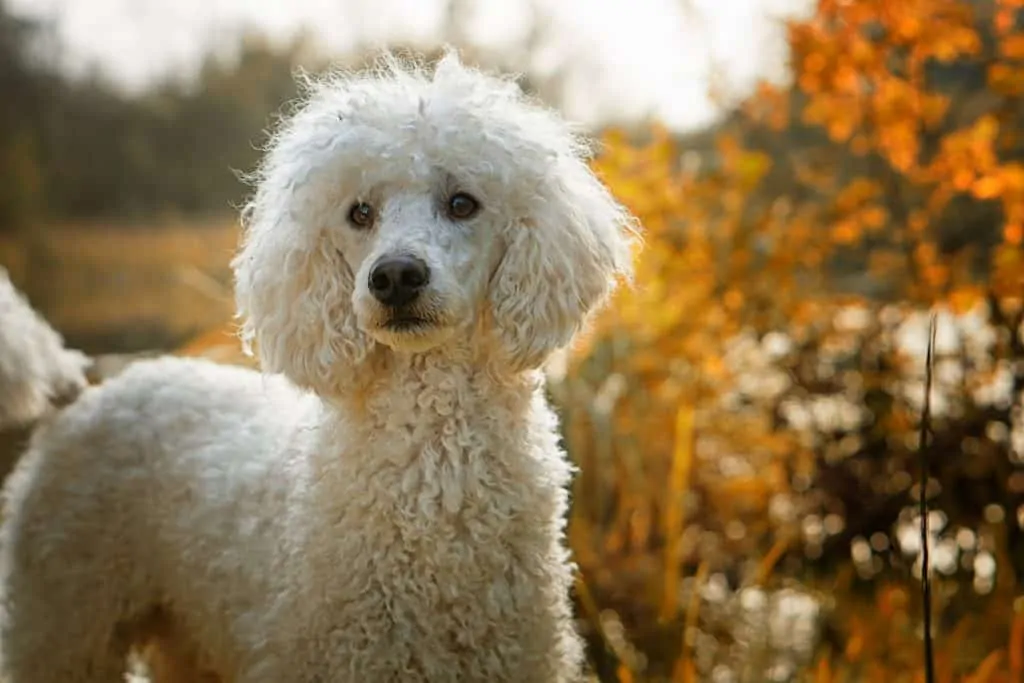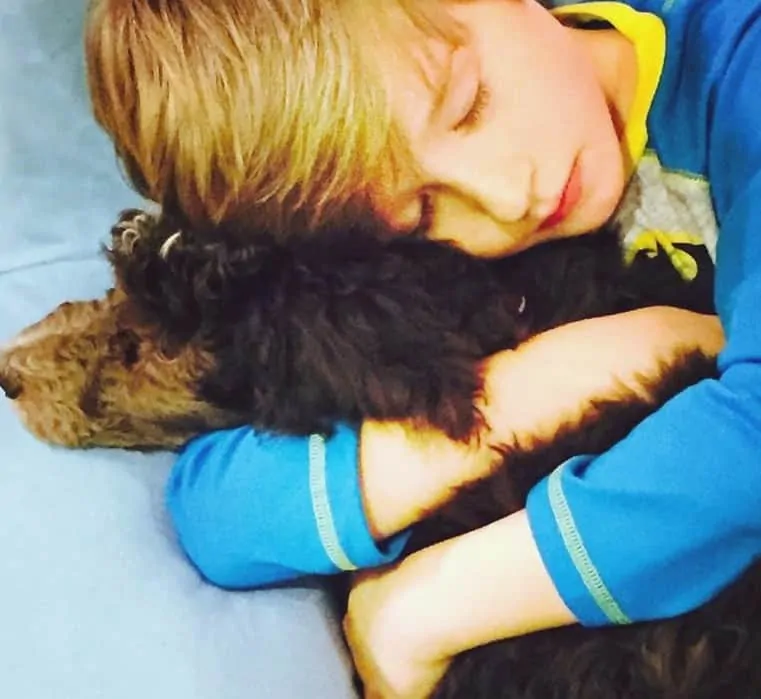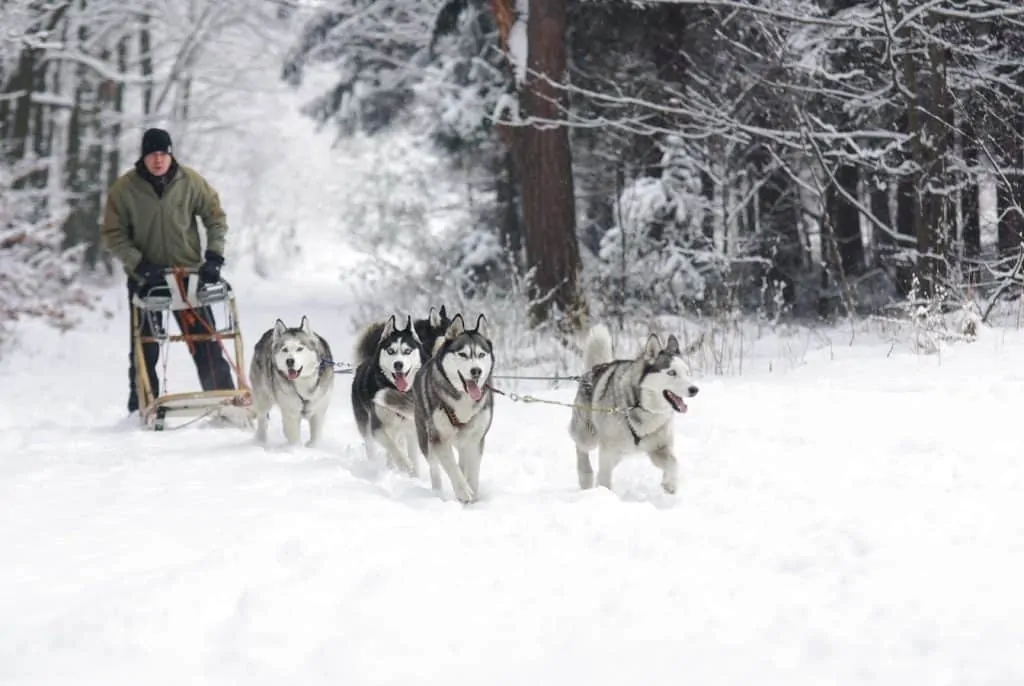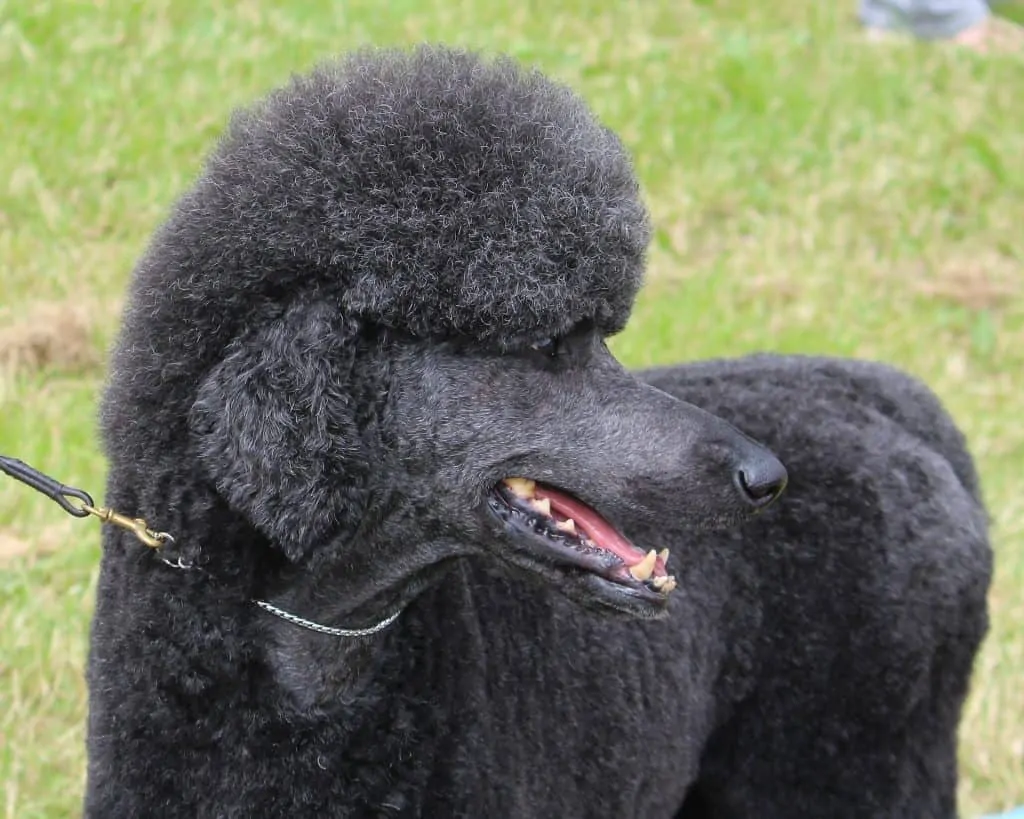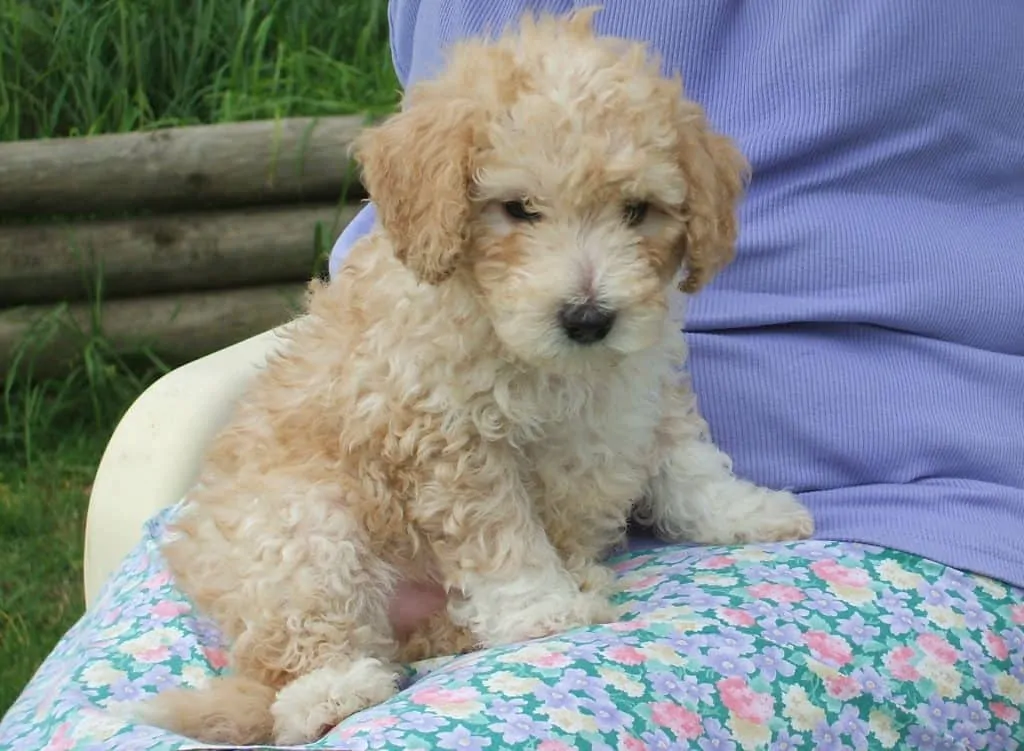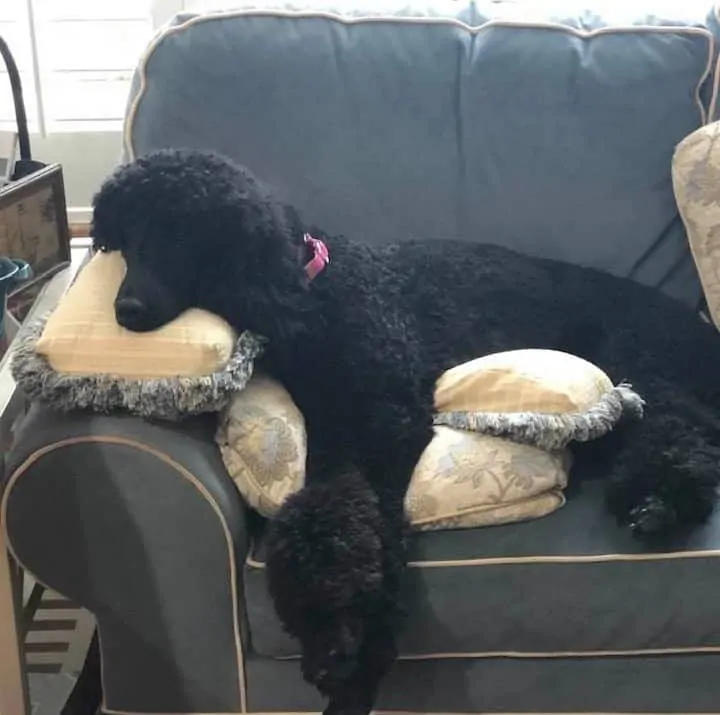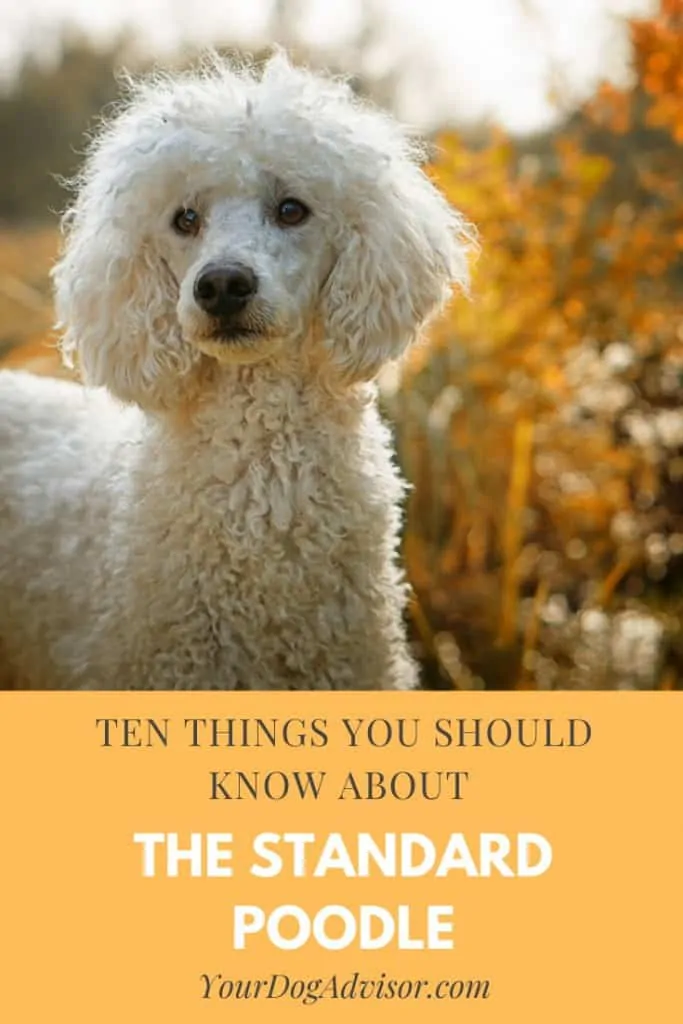Tall, elegant, and, for all appearances, aloof, the standard poodle might be characterized as one of the dog world’s most regal breeds. Leggy and statuesque, standard poodles exude a haughtiness and grace that has won the breed countless awards in the show ring over the years. Yet, as anyone who owns a standard poodle will tell you, all that dignity and grace are part of a wonderfully complex package that includes a smart, people-pleasing nature and a strong playful streak.
Poodles actually come in three distinct sizes: standard, miniature and toy, all of which are shown and registered as the same breed. The largest of these is the standard poodle: Dogs in this size group typically stand about 15 to 24 inches tall and weigh between 45 and 70 pounds (Males are generally larger than females.)
Standard poodles are tall and elegant, and come in many different colors, including black, white, cream, apricot, sable, silver, brown and red.
The standard poodle is also the oldest member of the poodle breed. Although the dog’s exact origin is unknown, some historians believe they descended from a range of European water dogs that includes the Barbet. Others think they derived from Asian or African herding dogs and were brought to Europe by the Moors. Regardless of its actual origins, however, there’s no doubt that the poodle is an ancient breed. Images of dogs resembling today’s standard poodle appear on cave walls and other artifacts dating back as far as the 1st century BCE.
Today, the miniature and toy poodles are the most popular sizes of the poodle breed. That said, the standard poodle is gaining a following, both here in the United States and abroad. And there are plenty of good reasons for that! Read on to learn some interesting facts about this elegant, intelligent, and incredibly resilient breed.
Contents
No. 1 Poodles Are Super-Smart
Consistently ranked among the smartest dog breeds, poodles are highly intelligent dogs who are generally easy to train. They excel at both obedience and agility and are eager learners who enjoy nothing more than making their owners proud. In fact, a standard poodle who isn’t consistently challenged to master new skills may find ways to keep himself occupied that are less than optimal in his owner’s eyes.
Poodles are also inherently emphatic. They are particularly adept at sensing when their human friends are feeling down in the dumps, and will often come over and offer kisses and snuggles in an effort to cheer them up.
Poodles are wonderful snugglers, and seen to have an inherent ability to sense when their owners need cheering up.
No. 2. Poodles Are Working Dogs
Their highly stylized hairdos and elegant bearing notwithstanding, standard poodles were initially bred as working dogs and are still used by many hunters for the job of retrieving downed prey. The name “poodle”, in fact, derives from the German term “pudelhund,” which loosely translates to “puddle dog.” Excellent swimmers with a naturally water resistant coat, poodles are skilled water retrievers: In France, they are also known as “chien canard” or “duck dogs” because of their strong duck hunting skills. What’s more, their work ethic isn’t limited to helping their owners hunt.
Poodles have also served as military dogs, therapy dogs and guide dogs throughout their long history.
No. 3. Standard Poodles Once Ran the Iditarod
An 1,150 mile race across the frozen Alaskan wilderness, the Iditarod is usually associated with Siberian huskies and Alaskan malamutes. But in 1988, an adventurous musher named John Suter entered the race with a team of standard poodles pulling his sled. Sadly, the poodles were overcome by the cold and ice, and had to be pulled from the competition. This led the event organizers to issue a new rule in the early ‘90s that allowed only “northern” dogs to enter the race. The rule is still in effect today.
In spite of their athleticism, the poodles owned by musher John Suter weren’t able to complete the grueling Iditarod, which is now open only to northern dogs like the malamutes and huskies shown here.
No. 4. Poodles Are a Hypoallergenic Breed
Although the term “hypoallergenic” is somewhat ambiguous, poodles are one of several breeds of dog whose fur grows continuously and, therefore, doesn’t shed. This poses some challenges around grooming, since their dense, curly fur can begin to mat if it’s allowed to grow too long. But it’s good news for allergy sufferers, many of whom can cohabitate with even a very large standard poodle and remain symptom free. This, along with the breed’s high intelligence, is one reason why standard poodles have become a staple of many interbred “designer dogs” such as the cockapoo, the goldendoodle, the labradoodle and the maltipoo — all of whom have the same hypoallergenic trait.
No. 5. Poddles Are the National Dog of France
Although it’s generally believed that the modern-day poodle hails from Germany (hence the name) the breed has long been honored as the national dog of France. Once favored by the the French aristocracy, the small versions of the poodle were often seen accompanying wealthy ladies around town during the 18th and 19th centuries. Their presence was so ubiquitous, in fact, that during the early 1900s the term “poodle-faker” became a popular slur among men in the British military, denoting young men who sought the company of wealthy, influential women, usually in an attempt to advance their careers.
No. 6. Poodles are Great Performers
These days, most of us are appalled at the notion that animals are used as entertainment. But during the 17th and 18th centuries, poodles were revered for their ability to perform astonishing tricks. Often touring with roadside shows and circuses, poodles were trained to dance on their hind legs, jump through hoops,carry items with their forelegs, and perform other athletic feats. Some even exhibited human-like intelligence. A standard poodle named Munito, for example, is said to have been able to play chess and dominoes, count, write, and assist his handler with “magic” trcks.
Poodles can be taught to perform many tasks and tricks, and were once used in circuses around the world. The practice is frowned upon by most animal lovers today.
No. 7 The “Poodle Cut” Isn’t Just for Show
Most of us are familiar with the elaborate, stylized haircuts worn by poodles in the show ring. But few of us are aware that these haircuts evolved as a way to help the standard poodle perform its “job.” A poodle’s fur is dense and heavy, and, despite the breed’s exceptional athleticism, tends to weigh the dog down when it is in the water retrieving prey. Shaving the hindquarters and legs helped to improve the dog’s buoyancy, while leaving “bracelets’ around the ankles protected their most delicate joints from the cold. Longer fur around the head, neck and chest likewise shielded the dog’s internal organs from cold water’s damaging effects.
The elaborate pompadour haircuts worn by many poodles were created to help the duck-hunting dogs stay light in the water while keeping the brain and other internal organs safe from the cold.
No. 8. Poodles Are Great with Kids
Historically, many people viewed the standard poodle as less playful and kid-friendly than their smaller counterparts. But while larger standard poodles are a bit less effervescent than the smaller sizes of the breed, they are wonderful family pets and do exceptionally well with kids. Because of their larger size, they hold up well to a fair amount of rough housing, and they are sweet and gentle with young children who may not understand that tails are not meant to be pulled. They also love the outdoors, and thoroughly enjoy a game of fetch in the yard and will even trot obediently next to your bike as you ride around the park.
No. 9. Standard Poodles Are Robust and Long-Lived
Although the standard poodle is a large breed dog, they are relatively long-lived, with lifespans of between 12 and 14 years. This is due in large part to the standard poodle’s general good health; they are not prone to many chronic diseases that may shorten their lives. That said, standard poodles can develop a few serious health issues, notably hip dysplasia, epilepsy, Addison’s disease and bloat. However, all of these can almost always be managed with regular veterinary care.
This adorable poodle puppy can be expected to live up to 14 years or more with the right diet, exercise and veterinary care.
No. 10 Poodles Are a Favorite of Celebrities
Given their high intelligence and regal appearance, it’s not surprising that poodles have long been a favorite of celebrities around the world. Elvis, for example, was a devout poodle-lover, keeping several as pets and sometimes giving then to his girlfriends as gifts. Hollywood notables Elizabeth Taylor, Robin Williams, Lucille Ball, Katherine Hepburn and Marilyn Monroe also owned poodles during their lifetimes, as did authors Charles Dickens and John Steinbeck. Jackie Kennedy and Sir Winston Churchill were poodle aficionados as well.
Obviously, poodles of all sizes are great dogs that make wonderful family pets. But the standard poodle, with its stately demeanor and high intelligence, is an especially wonderful choice for dog lovers who are looking for an obedient, playful, robust dog who will be as at home cuddling on the couch as he is playing Frisbee in the park.
Though they love play time, standard poodles and quite content to nap on the couch and relax, too.

Sara Seitz has spent most of her life in the pet industry and has a bachelors in animal behavior from Colorado State University. Sara started working with dogs and cats as a high schooler at a rural boarding kennel. There she learned a lot about the bad and the ugly of the pet service industry. But not even the toughest day at that job would dissuade Sara from following her dream of working with animals.
In college, Sara got a job at a dog daycare and boarding facility in Fort Collins, Colorado. Her new career provided even more opportunities for learning about dog behavior than her classes did. As general manager of the daycare, Sara helped the company launch a new in-home pet sitting branch and trained to become a certified dog trainer. Between shifts taking care of peoples pets in-home and supervising dogs during playtime at the daycare, Sara organized and taught obedience classes.
Sara has always been passionate about bettering the lives of our canine companions. She soon found that advocating for and educating owners in the power of positive reinforcement training was one of the best ways to help dogs and their owners live happier lives.
